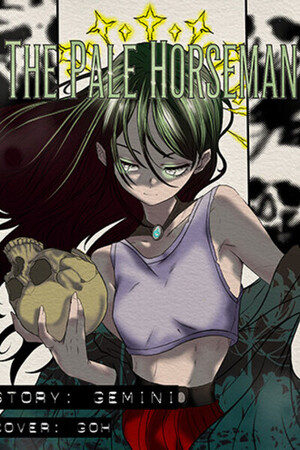Chapter 1:
Music in the Capital
The Bard
Once more I beheld her, upon a moonless gaol, cold flesh, scent of myrrh, 'neath her funeral veil. Twice I have mourned, once above, and once below, and with her life scorned, my own became hollow.
-Excerpt from “Spin the Tale, Dear Lady”
I sat on a simple wooden stool, my lute across my lap. Sweat trickled down my back, and my fingers ached from a long evening of playing, but there was nowhere else in the world I’d rather have been. With a gentle touch, I strummed the first note of my final song, then held it long enough for the drunken chatter to fall away. I felt the attention of three dozen tavern patrons, all in various states of inebriation, shift with focused clarity toward the sound.
“Come one come all, to hear the tale of the Dear Lady,” I intoned. “Once I beheld her upon a starry night…”
My voice carried across the crowd using faint tendrils of wind magic, the subtle power just enough so that every onlooker felt as if I were speaking with them face to face. It was a trick I had learned some years prior, near the beginning of my career as a bard.
“… Twice I loved her, ‘neath pitch-blackened sky…” The song I was performing was one I had written myself, based on a half-true story I first heard in a rural fiefdom three kingdoms over. It spun the tale of the fair daughter of a duke who fell in love with a stableboy, and the summer they spent in one another’s embrace. It was the perfect song to end the night on, and I played with certainty and precision.
My fingers flew across the lute as I recounted the tale, sweeping the audience off their feet and pulling them into the swift current. The crowd was silent for the entire performance, having spent all of their rebellious energy on the songs I played before. That was how I had learned to carry a crowd—open the night with dance music and shanties to rile them up, and then slowly, carefully bring them down from that high until they were emotionally exhausted enough to stay silent during the coup de grace.
Spin the Tale Dear Lady is a decidedly sorrowful song. Love between a noble and a commoner is impossible—no, more than impossible, it is unnatural. In the beginning, the story plays out like any other great romance, full of passion and lacking in reason. If I were a more concerned with happy stories, perhaps I would have written the ending to mirror the beginning. But I am no romantic, I care only for the truth.
“Once more I beheld her, upon a moonless gaol…”
I struck the final note, letting it hang in the air until the strings fell silent. The audience stared for a moment, and then a young barmaid—her duties long forgotten as she became engrossed in the song—let out a tiny, weeping gasp. With that one sound, the tavern filled with the sound of crying and whispering.
I packed away my lute while the crowd was distracted with their emotions, and slinked off stage. A good performer always knows when to end a show, and I had become an excellent performer over the last few years.
“That was a helluva show,” the barkeep, Jean, said as I sat down in a corner of the crowded tavern. He carried a tray under one arm, which he absently drummed with a finger to the beat of one of the dance songs I had performed earlier that evening.
“Thanks”, I said. “Can I get an ale, and maybe something to eat?”
“You got it,” he said, and went about his work. Within minutes I had a steaming bowl of stew with fresh barley bread and a mug of lukewarm ale in front of me. I ate with methodical precision, not tasting the food. I need to leave town soon, I thought. I’d been in the Royal Capital for almost a month, and my wells were starting to run dry—there were no new stories to be tapped. Maybe one more night.
The capital was more comfortable than anywhere else I’d been since returning to Elda, and I was somewhat loath to resume sleeping under hedges and in roadside ditches.
“Thanks for the meal,” I said as I finished the last bite, then stood to leave. The bargoers had all resumed their idle conversations or stumbled away too drunk to continue in the land of the awake.
I climbed the stairs to the second floor, where my tiny room was. I had been living there for three weeks, in exchange for playing nights in the tavern downstairs. It was my preferred arrangement because it let me busk during the daylight hours and save money for the road. My first year as a performer I had almost starved, in part because despite my talent with music, I did not know how to work a crowd, and in part because I had grown far too used to having money whenever I needed it. During my second year, I learned a lot and started saving every penny I could get my hands on, and now three years in, I was flush. I did not earn as much money as my father, but I had socked away enough that I could settle down somewhere and start a family if I wanted to.
I threw myself onto the rickety bed and closed my eyes. Exhaustion swept over me, every tiny stressor from the day replaying in my mind. The Royal Capital was beautiful—a simultaneous barrage of hectic market days, and the gentle serenity of the copious parks and flower gardens that dotted the cityscape. All of it blended to make a unique and invigorating environment, but it was draining to experience it day after day. How do the people live like this? I thought, not for the first time.
My breathing steadied, then became rhythmic, and finally, I slipped into sleep.




Please sign in to leave a comment.